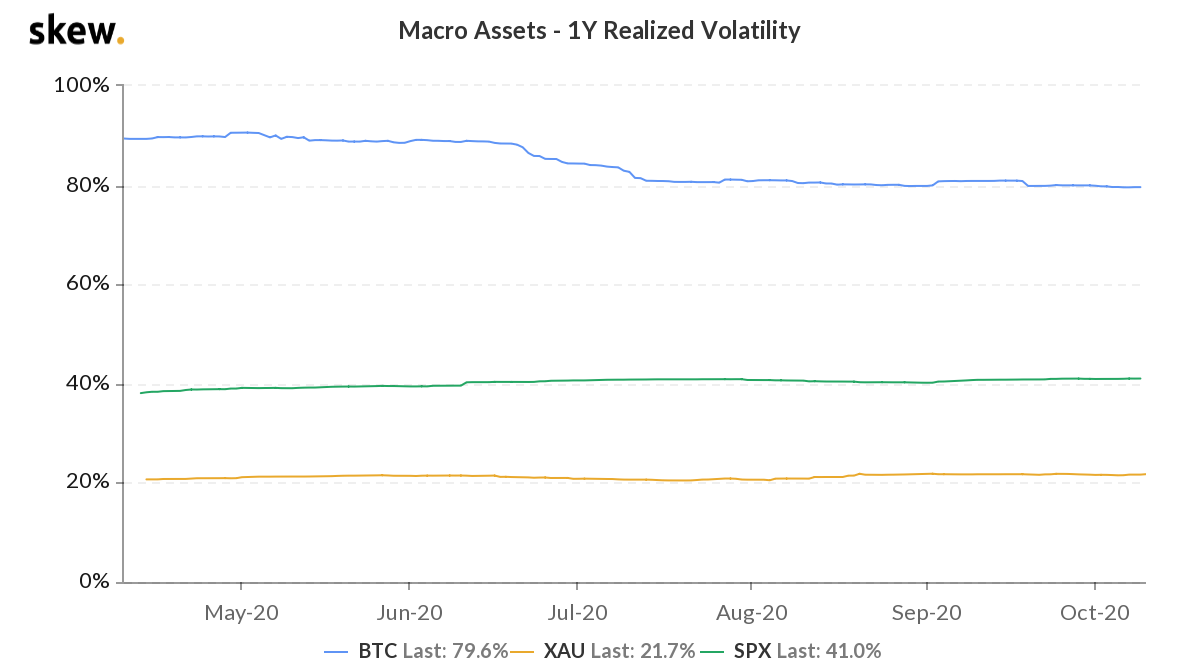Bitcoin’s adoption narrative over the past few years has been rather promising. With institutional investors stepping in along with more regulatory and tax clarity for digital assets and the larger crypto-market, 2020 has seen renewed interest in assets like Bitcoin. This has led to some of the suspicions surrounding crypto being debunked, while also contributing to new investors entering the digital assets market with far less suspicion.
For Bitcoin, 2020 has been a fairly stable year in terms of its price. While the coin hasn’t really gone past its previous all-time high, it has managed to go past key points of resistances. Two days ago, payment company Square Inc. invested over $50 million in Bitcoin, a development that could have played a part in the king coin’s valuation going past and remaining well over the $11,000 price level over the past 24-hours.
However, huge investments in Bitcoin by companies like Square Inc. notwithstanding, are there advantages for small and medium-sized companies entering the uncharted waters of crypto and digital assets?
In a recent interview, Parker Lewis, Head of Business Development at Unchained Capital, discussed Bitcoin’s adoption trajectory and the barriers that stand in its way of widescale adoption. Lewis noted that in the case of big companies, the shift to using and investing in crypto won’t be as easy as for smaller companies. He highlighted,
“If Google wanted to go shift over $5 billion, Bitcoin would be really hard….the other part of the equation is it will continue to improve in small and medium-sized businesses. You just have less people and less decision-makers. It’s a lot easier for small and medium sized companies to be nimble and to move quickly.”
However, he also noted that this adoption movement can start with smaller companies, with bigger entities eventually transitioning. Parker pointed out,
“I think it starts with the small to medium-sized businesses and then works its way up to the [likes of] Microsoft Google and Facebook…Even the large-cap companies that are putting in Bitcoin, they are going to start to hold Bitcoin on balance.”
While this seems like a promising scenario, do assets like Bitcoin offer the perceived stability traditional assets offers are known for? While Bitcoin’s price has been fairly stable, there have been instances where a huge percentage of its value was lost in a matter of hours in 2020 alone. The now infamous Black Thursday crash is an example that saw the world’s largest crypto plummet to below $4k in a matter of hours.


Source: skew
In fact, market data from Skew highlights the volatility cryptocurrencies like Bitcoin endure, in comparison to traditional assets like gold and S&P 500. At press time, Bitcoin’s 1Y Realized Volatility amounted to over 79 percent, in comparison to gold’s 2.7 percent. However, the fact that BTC still notes such a high level of volatility poses a greater threat when it comes to adoption and may see businesses become more comfortable investing in tried and tested traditional assets that are in comparison far from volatile.
The post appeared first on AMBCrypto






